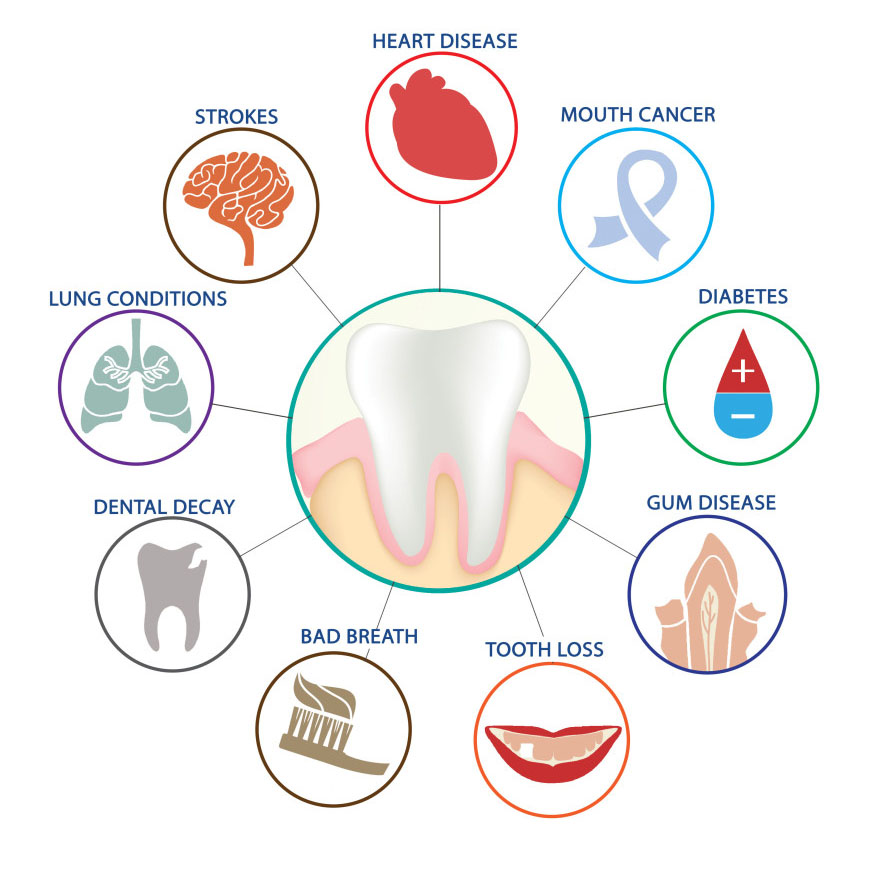Preventive dentistry is the practice of recognizing, treating, and preventing dental disorders. Preventive dentistry is a branch of dentistry that aims to maintain oral health. Its components include routine dental tests and healthy habits like brushing and flossing. Your teeth are an important gift that, with proper care, will benefit your body for the rest of your life, from youth to old age. As such, you should treat them with the utmost respect and care.
Each day we use our teeth while we eat, talk, or even smile. Teeth and gums are sensitive and need to be cared for daily or they can be subjected to infection, decay, and total loss. If problems are detected early on, we can take preventative measures that will stop concerns from developing into serious problems. Many of the procedures that your dentist performs on neglected teeth cost more to treat. They are also more painful and take longer to heal in many cases.
Why Is Preventive Care Important?
Prevents dental issues – Regular dental check-ups and cleanings are critical for recognizing and treating oral problems early on. This includes recognizing cavities, gum disease, and oral cancer in their early stages, which makes treatment more successful and less intrusive.
- Saves Money and Time – Investing in preventative care might help patients avoid costly and time-consuming procedures later on. Routine check-ups and cleanings are often less expensive than sophisticated dental procedures such as root canals or dental implants.
- Promotes Overall Health – Oral health is intricately linked with overall health. Research has shown connections between oral health and conditions such as heart disease and diabetes. By maintaining good oral hygiene, individuals can mitigate the risk of developing these systemic diseases.
Components of Preventive Dentistry
- Regular dental checkups – Dental visits should be scheduled every six months. During these examinations, dentists perform extensive examinations to assess the condition of the teeth and gums. X-rays may also be taken to detect problems that are not visible to the naked eye.
- Dental cleaning – Professional cleaning is essential to remove plaque and tartar, which cannot be effectively removed by regular brushing and flossing alone. This helps prevent cavities and gum disease.
- Oral hygiene at home – Proper brushing and flossing techniques are important for maintaining oral health between dental visits. Dentists recommend brushing at least twice a day and flossing daily to remove plaque and food particles.
- Diet and oral health – A balanced diet is essential for oral health. Limiting sugary snacks and drinks can help prevent cavities. In addition, calcium-rich foods such as dairy products and leafy greens promote strong teeth and bones.
- Fluoride treatments and sealants – Fluoride treatments and dental sealants provide additional protection against cavities. Fluoride helps strengthen tooth enamel, while sealants prevent food and bacteria from building up in the grooves of molars.
Special Considerations
- Children and Preventative Care – Adopting good oral hygiene habits at an early age lays the foundation for a healthy smile for life. Pediatric dentists specialize in the unique dental needs of children and can provide guidance on oral hygiene and eating habits.
- Pregnancy and oral health – Hormonal changes during pregnancy can increase the risk of gum disease and tooth decay. Pregnant women should continue to prioritize preventive care, including regular dental checkups and cleanings.
- Seniors and Oral Health – As they age, they may experience changes in their oral health, such as dry mouth and gum disease. Regular dental visits are essential to detect and treat these problems before they get worse.
In conclusion, preventive care in dentistry is crucial for maintaining optimal oral health and overall well-being. By prioritizing regular dental check-ups, cleanings, and practicing good oral hygiene habits at home, individuals can prevent dental issues and enjoy a healthy smile for years to come.

